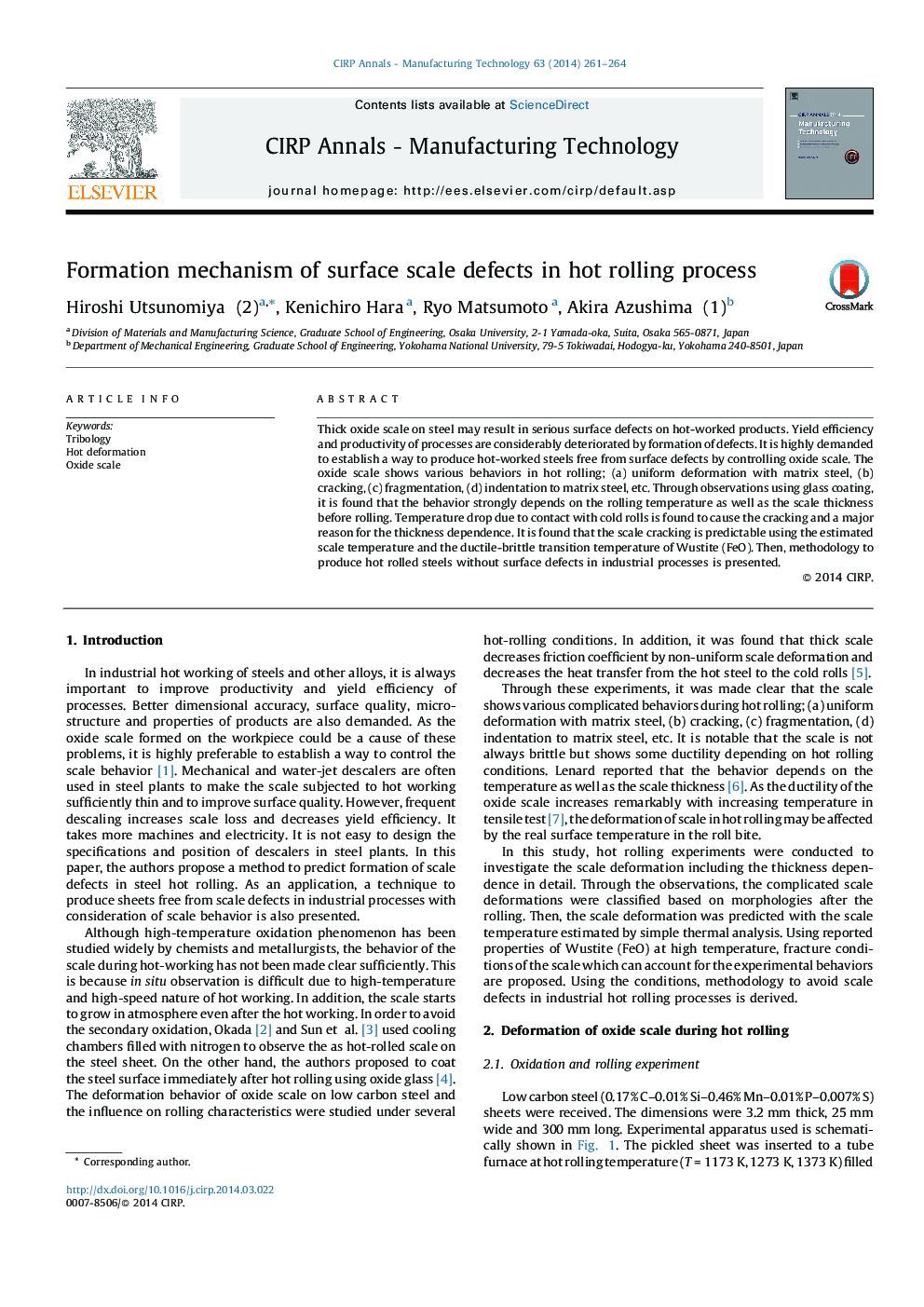| Article ID | Journal | Published Year | Pages | File Type |
|---|---|---|---|---|
| 1679369 | CIRP Annals - Manufacturing Technology | 2014 | 4 Pages |
Thick oxide scale on steel may result in serious surface defects on hot-worked products. Yield efficiency and productivity of processes are considerably deteriorated by formation of defects. It is highly demanded to establish a way to produce hot-worked steels free from surface defects by controlling oxide scale. The oxide scale shows various behaviors in hot rolling; (a) uniform deformation with matrix steel, (b) cracking, (c) fragmentation, (d) indentation to matrix steel, etc. Through observations using glass coating, it is found that the behavior strongly depends on the rolling temperature as well as the scale thickness before rolling. Temperature drop due to contact with cold rolls is found to cause the cracking and a major reason for the thickness dependence. It is found that the scale cracking is predictable using the estimated scale temperature and the ductile-brittle transition temperature of Wustite (FeO). Then, methodology to produce hot rolled steels without surface defects in industrial processes is presented.
